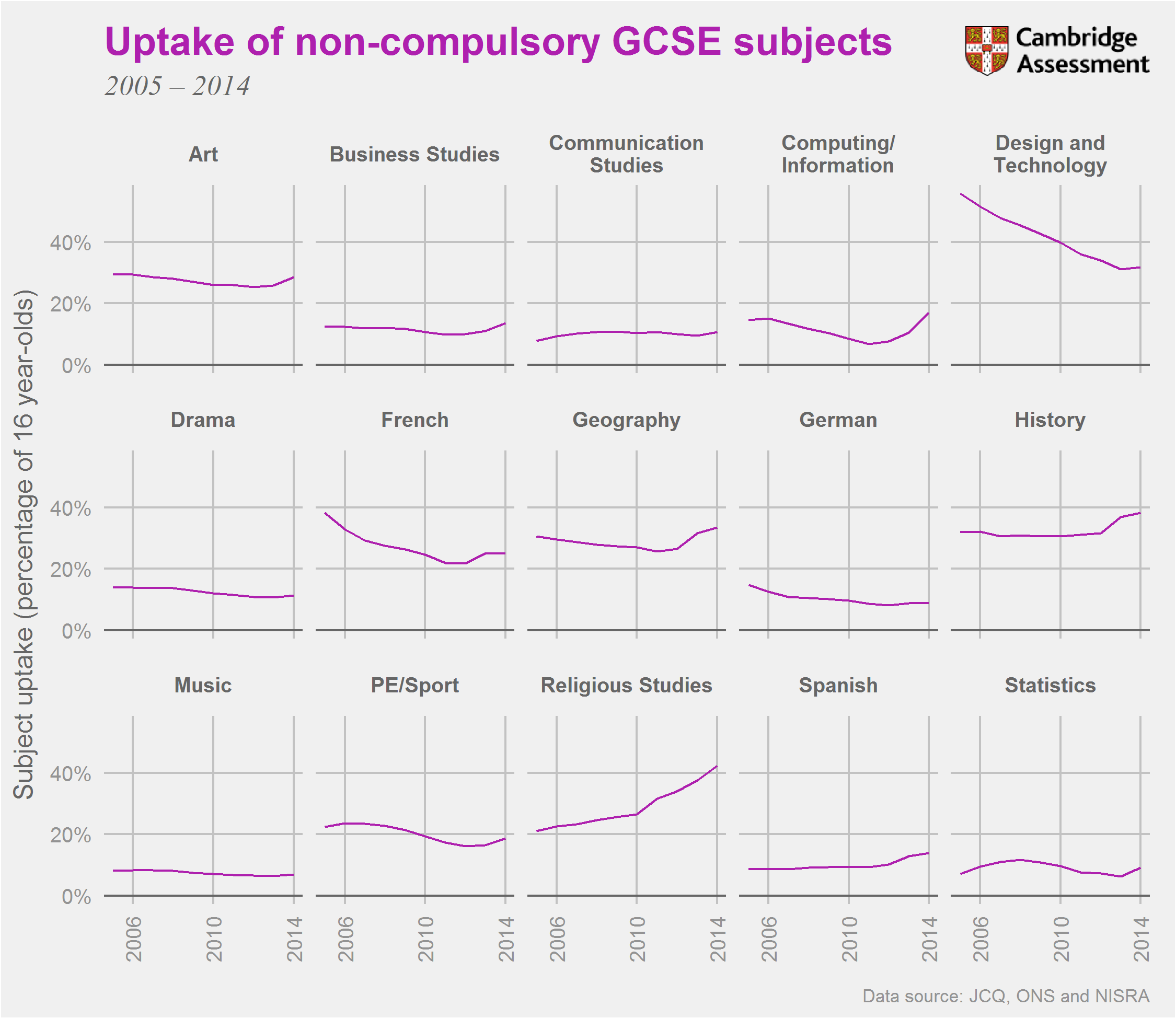June 2017
Summary
In Year 9, students choose the GCSE subjects that they will pursue for further study over the next two years. English, Maths, and Science are compulsory and some schools may require students to take certain additional subjects. However, children have the freedom to choose the remainder of the subjects they study. In this Data Byte, we look at the popularity of these non-compulsory GCSE subjects from 2005 to 2014.

What does the chart show?
The chart shows the uptake of the 15 most popular non-compulsory GCSE subjects in England, Wales and Northern Ireland for each year from 2005 to 2014, as investigated in our recent Statistical Report. We measure popularity as the average percentage uptake over the ten-year period.
We have estimated the GCSE cohort as being all 16 year-olds using population data from the Office for National Statistics (ONS) and the Northern Ireland Statistics and Research Agency (NISRA). The entry data is sourced from the Joint Council for Qualifications (JCQ) and applies to entrants certificating in the qualification during the summer exam session.
In order to show the qualifications that students have actively chosen, we have limited the chart to subject areas which are non-compulsory. Compulsory subjects at GCSE are English Literature, English Language, Mathematics and Science; we have excluded both Combined Science and the individual sciences.
Why is the chart interesting?
Uptake of the majority of subjects is fairly constant over the ten years, with some notable exceptions. Religious Studies shows the largest increase in uptake, whereas Design and Technology shows the largest decrease. The reasons for these changes in popularity are unclear and it would be interesting to investigate these further.
The English Baccalaureate (EBacc) school performance indicator was introduced in 2010 and subjects included in the EBacc are the compulsory subjects, plus History or Geography, and a language. Geography, History, French, and Spanish all show clear up-ticks in popularity since its introduction.
Computing/Information has also increased in popularity in recent years; however, this increase followed a decline in popularity. In 2014 uptake was 17% compared to 15% in 2005.
Further information
Our Statistical Report No.98 gives further information on the entry data provided by JCQ.